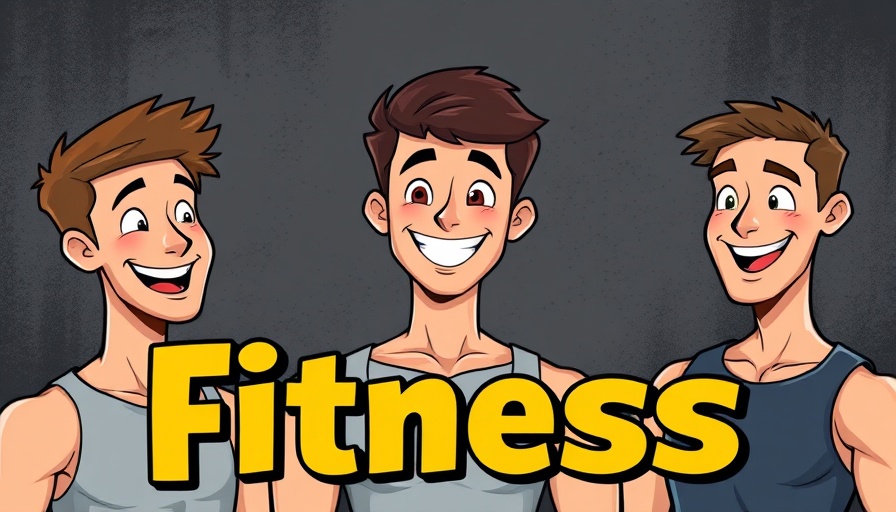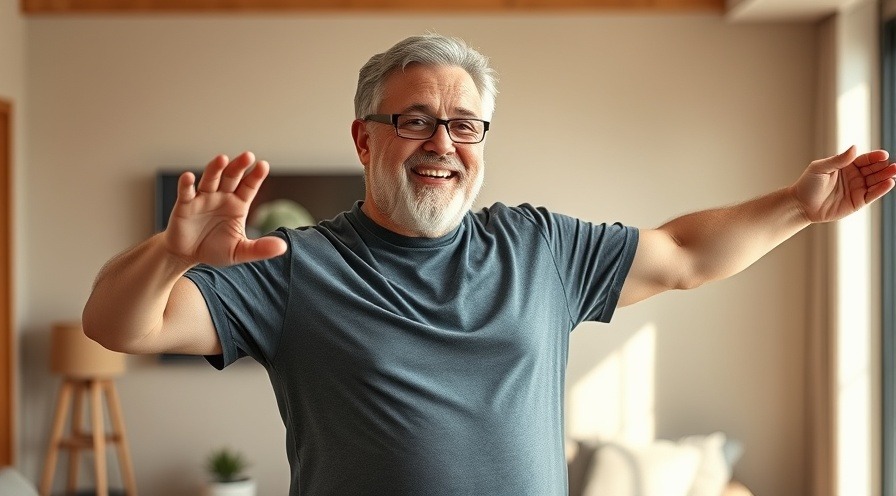
Unlocking the Secrets to Longevity: Effective Exercises for Everyday Life
When we think about our health span—essentially the duration of time we remain healthy and active—exercise plays a crucial role. In a recent discussion that explored the best techniques for enhancing longevity, experts highlighted the importance of integrating simple yet effective exercise routines into our busy lives. With many juggling work and family commitments, it often feels impossible to allocate significant time for traditional gym workouts. Fortunately, the idea of "exercise snacks" has emerged, which suggests that even short bursts of activity can deliver significant health benefits.
In 'Best exercises for longevity & healthspan | ft. Physionic & Brad Stanfield', experts share valuable insights on how integrating manageable exercise into daily life can elevate health and longevity.
The Power of "Exercise Snacks" in a Busy Lifestyle
Imagine doing a quick set of push-ups during a break or taking ten minutes to walk instead of driving the entire way. These strategies, known as exercise snacks, can easily fit into your daily routine, making movement a natural part of your day rather than a chore. According to health professionals, the key takeaway here is that some exercise is definitely better than none. It’s about taking those baby steps that lead to sustainable changes over time. Engaging in two to three exercise snacks a week—even if it's just a few minutes—can yield impressive health benefits, particularly for those who have historically led a sedentary lifestyle.
Enjoyment: The Essential Ingredient
Finding a physical activity that brings joy can make all the difference. If you hate running or lifting weights, why force it? Instead, consider enjoyable activities like dancing, playing tennis, or even gardening. This not only helps maintain motivation but also transforms working out from a chore into a fun social experience. The sense of community that comes with class workouts or team sports can be highly beneficial, encouraging accountability and keeping you committed to your health journey.
Understanding the Impact of Exercise on Aging
As we age, maintaining both strength and power becomes essential. Research indicates that resistance training is not just for young gym enthusiasts; it’s equally important for older adults, especially to combat sarcopenia—the loss of muscle mass and function with age. Regular exercise can increase your ability to respond quickly, which can help prevent falls—a significant risk for older individuals. In fact, studies show that exercise can reduce the risk of falling by addressing strong community outcomes like balance and strength training.
Why Resistance Training Should Be Part of Your Routine
Combining resistance training with aerobic exercises creates a balanced workout routine. Experts recommend performing compound exercises that target multiple muscle groups, such as push-ups, squats, or deadlifts at least twice a week. These exercises contribute significantly to overall strength, metabolism, and physical function. The ultimate goal of any workout should be to enhance your ability to perform daily tasks easily and without discomfort.
Make Exercise Fun: Community and Challenges
Group challenges provide motivation and a sense of community, making the exercise experience enjoyable and rewarding. Studies show that participating in structured activities enhances compliance and effectiveness. Many people find that engaging in friendly competition—like a VO2 max challenge—can spice up their workout routine and transform their exterior perception of physical activity. With a focus on celebrating the small wins along the way, you'll find yourself motivated and looking forward to more.
Actionable Insights for a Healthier You
In summary, enhancing your longevity and health span is about integrating simple, enjoyable physical activities into your daily life. Whether it's through short exercise snacks that can be done while busy or discovering a community that encourages consistent movement, the key is to get started now. Remember, it’s not always about intense hours at the gym, but rather finding what keeps you moving and engaged.
It's time to take action. Talk to your healthcare provider about integrating these strategies into your life. Understanding the importance of daily movement and actively enriching your health can profoundly influence your future wellbeing.
 Add Row
Add Row  Add
Add 




 Add Row
Add Row  Add
Add 

Write A Comment